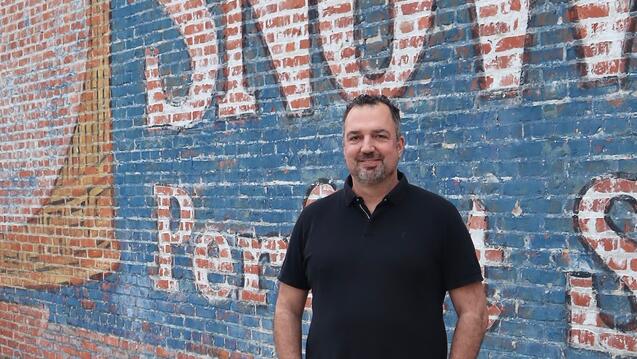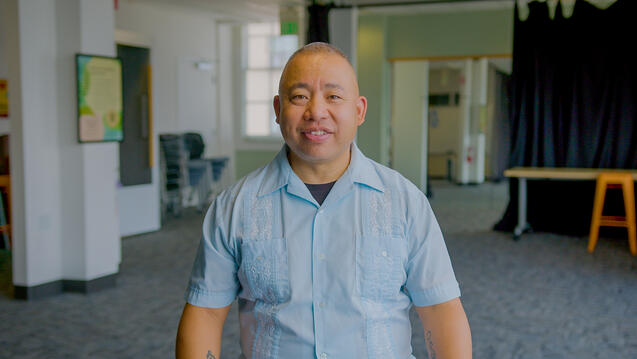Playwright and activist Alex Burger brings his global experience into the CIIS MFA classroom, teaching art as transformation, and crisis as creative fuel.

Teaching Transformative Leadership
Why I teach Transformative Leadership at CIIS
One of the most appealing aspects of being a member of the CIIS community is the ability to have conversations and engage in ideas and philosophies that perhaps cannot take place anywhere else in my life.
The questions deepen in the classroom as social justice, spirituality, psychology, feminism(s), ecology, leadership, cosmology, critical theory, art, indigenous ways of knowing, and many many other areas of inquiry are creatively threaded together, and woven into transformative tapestries of potential.
The potential to bridge these ideas and philosophies with the practical and applicable aspects of leadership is what initially drew me to the Transformative Leadership program at CIIS.
What's at the Core
For example, how can a philosophical understanding of the mutuality and interdependence between humans and all life be at the core of the practical work we do in the world? How do we engage our values in transformative action and leadership?
These questions are deep-rooted for me, as time and again I have been disheartened when those leading progressive social justice movements achieve success, yet unreflectively adopt the very non-egalitarian and discriminatory leadership styles they were struggling to transform.
So I can say that my attraction to the Transformative Leadership program has also been formed through my uneasy and unfolding" relationship with the term "leader." The sense of unease stems from an unwillingness to participate in oppressive hierarchies, and a lack of faith, or disappointment in "business-as-usual" command and control models of leadership.
The unfolding emerges through a continuous search for ways to define and practice leadership that critically and optimistically hold the possibility for a truly transformative, restorative, collaborative, communal, and healing endeavor... and peaceful, and balanced, and compassionate... and more!
The Personal Labor of Transformation
The "unfolding" also emerges through a relationship of constant reflexivity between personal and social transformation, so that when we do step into leadership positions we have already engaged with the personal labor of transformation.
As a faculty member, I see the classroom and pedagogical engagement as a place for my own style of leadership to emerge at this intersection of personal and social transformation.
Currently, I am excited to explore pedagogies of invitation that AnaLouise Keating describes in her book Transformation Now! Toward a Post-Oppositional Politics of Change. As Keating writes: "Invitational pedagogies are non-oppositional and require intellectual humility, flexibility, and open-minded willingness to shift."
Related Academic Program
Related News
Fernando Ona, Chair of Transformative Inquiry at CIIS, carried questions from Iraq to the classroom—and found space to explore them.
Discover the latest works from CIIS faculty—spanning psychology, spirituality, ecology and the arts. These recent publications show how our community is advancing scholarship and creativity in service of personal and collective transformation.



